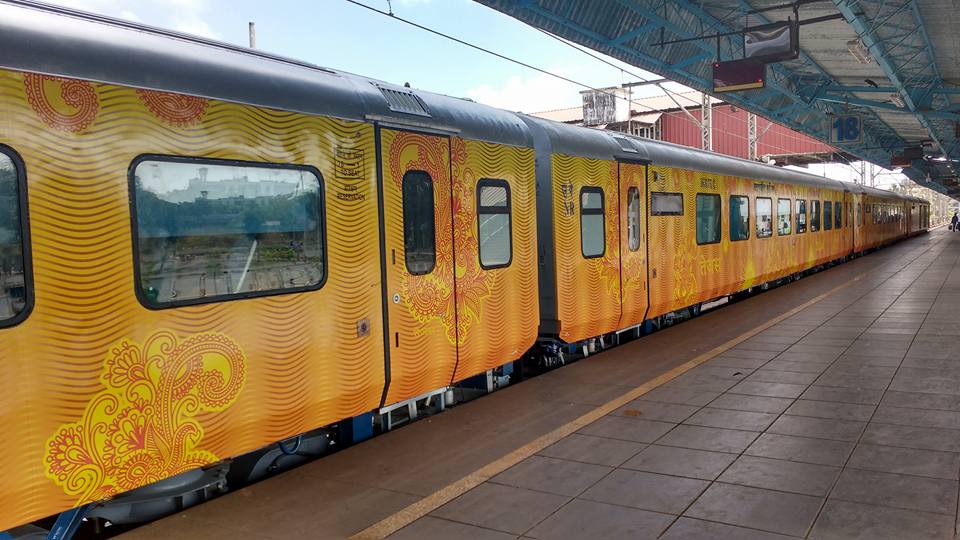The railways’ cutback of services on Sunday in view of the “janata curfew” announced by the Prime Minister will mean the cancellation of at least 3,000 trains, likely far more, ministry sources said.
They said that passengers who had bought tickets will receive full refunds. Goods trains will not be affected.
Amarjeet Kaur, leader of the CPI-backed workers’ body Aituc, said the country had never before witnessed such large-scale train cancellations without a natural calamity, except for the famous railway strike of 1974 led by George Fernandes.
Railway board joint director Ajay Pratap Singh has advised the zonal railways to regulate train services keeping in mind the reduction in demand between 7am and 9pm on Sunday.
Prime Minister Narendra Modi has asked people to stay home between 7am and 9pm on Sunday as part of the fight against the coronavirus pandemic.
Singh has told the zonal railways that suburban services in Mumbai, Delhi, Calcutta, Chennai and Secunderbad should be reduced to a bare minimum. Which trains are to be run will be decided by the respective zonal railway after an assessment of local conditions and requirements.
Passenger trains scheduled to start between March 21-22 midnight and 10pm on March 22 will be cancelled, but those starting before March 21-22 midnight will complete their journeys. Approximately 2,400 passenger trains are likely to be cancelled, sources said.
Mail, express and intercity trains scheduled to originate between 4am and 10pm on Sunday will not run, which means nearly 1,300 trains will be cancelled. Mail, express and intercity trains that started before 4am on Sunday will complete their journey.
Rajesh Dutt Bajpai, executive director (information and publicity), railway ministry, said that wherever long-distance and intercity trains have huge occupancy, the zonal railway may at its discretion decide not to cancel such trains. It may run them, with or without revising the schedule, to avoid a large number of passengers getting stranded.
The e-tickets of passengers who paid online will be automatically cancelled and the money refunded electronically. Those who bought tickets from the counters can claim the refund over the next three months — in contrast with the usual 72-hour window. No cancellation charge will be levied, the railway official said.
Virjesh Upadhyay, general secretary of the RSS-backed Bharatiya Mazdoor Sangh, said the move was rare but the coronavirus emergency warranted such a decision.
“On rare occasions, rare decisions are taken. Was there a coronavirus scare before? It’s a health emergency. This decision is fine,” he said.
Aituc leader Amarjeet said the 1974 strike had caused a far bigger disruption, with 70 per cent trains cancelled for 15 days.
“Otherwise, train services are affected by natural calamities like floods. This kind of mass cancellation is rare,” she said.
In 1974, the All India Railwaymen’s Federation had gone on strike demanding an eight-hour working day and higher salaries. The then Indira Gandhi government eventually broke the strike but the demands were later accepted.
Union home secretary Ajay Bhalla on Saturday asked the chief secretaries of all the states and Union Territories to ensure the observance of the “janata curfew”.
His letter asked these bureaucrats to ensure that local bodies, fire services, police, civil defence and “industrial establishments” blow sirens at 5pm on Sunday to express gratitude to those involved in tacking the virus threat.
The letter referred to Modi’s call to people to move to their balconies or doors/windows for five minutes at 5pm on Sunday to applaud --- by clapping, beating metal plates or bells --- those risking their lives serving the people.
“Action taken (siren-blowing) in this regard may be pleased intimated to the ministry by email at dresponse-nerc@gov.in,” Bhalla’s letter said.
Asked what the motive behind the move was, a home ministry official refused comment.











